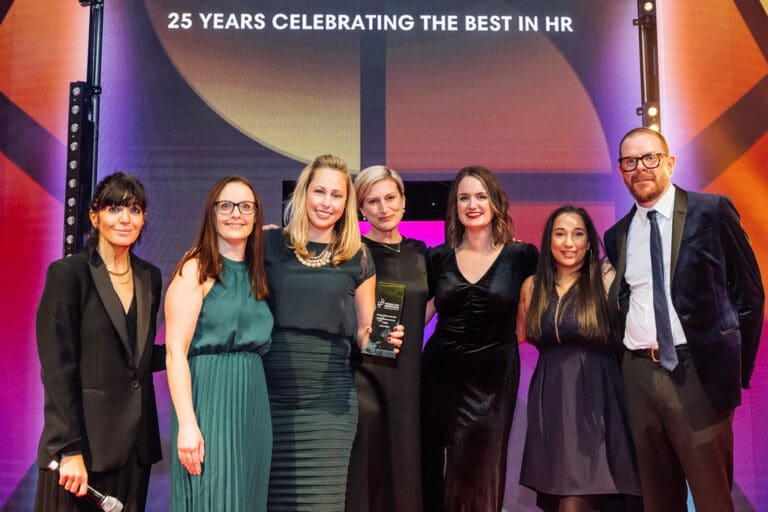Over the next ten years, an estimated 60 million Gen Z professionals will be entering the workforce in the United States. For employers, this presents both a challenge and an opportunity to deliver on the wants, needs and expectations of a new generation of candidates.
While much has been made of the impact of Millennials on work and in society, Gen Z now outnumbers their older counterparts, making up 32% of the world’s 7.7 billion population.
As the tide of demographics ebbs and flows, it’s important for employers to recognise shifts in candidate values and expectations. Employer brand and reputation is now extremely important, with 84% of jobseekers saying the public reputation of a company would sway their decision to accept or decline an offer.
Within this context, the factors that determine an employer’s reputation are changing too.
While in the past things like employee benefits, salary and job security were the top motivators, today’s candidates expect organisations to offer a culture that aligns with their personal values and beliefs.
In this article, we’ll take a look at some of the top issues that Gen Z audiences care about – and demonstrate why employers should care too. By demonstrating care and a genuine commitment to wider social issues, organisations can better position themselves in the marketplace and ultimately attract better talent.
Diversity and inclusion
According to new data, 48% of Gen Z audiences identify as racially or ethnically diverse. Given that this cohort is more diverse in its makeup than ever before, it’s clear issues of diversity and inclusion will be top of mind as early careers candidates search for their first job.
The latest research supports this idea, with a new study showing that 83% of Gen Z candidates say “a company’s commitment to diversity and inclusion is important when choosing an employer”.
For Gen Z candidates, lip service won’t suffice. Employers need to demonstrate a real commitment to making diversity and inclusion a strategic priority within the business. Younger generations, for example, will look to see how ethnically diverse a company’s board is – or whether women are represented in senior leadership positions across the business.
On the talent attraction side, recruiters will need to find new ways of attracting and engaging talent from diverse backgrounds. Virtual events are useful here, given that digital hiring events can reach any candidate in the world that has access to a computer and the internet.
Racial inequity
With the rise of the Black Lives Matter movement in 2020, there’s now a greater spotlight on racial inequity than ever before. As a diverse generation, Gen Z applicants want employers to demonstrate a genuine willingness to address racial inequity and discrimination with real, substantial action.
In a recent survey, more than 90% of Gen Z said they support Black Lives Matter, while a further 86% felt that peaceful protests and political demonstrations are necessary to create significant change and fight systemic racism.
In our pre-covid world, a successful employer branding strategy tended to focus on the culture in relation to the office perks, and what a fun place the company is to learn and grow. Now, however, it’s become much harder for organisations to separate themselves from wider social issues – especially if those companies want to appeal to a new generation of talent.
Topics of social injustice and racial prejudice are highly charged issues, but younger generations feel that employers have a responsibility to show the steps they’re taking to address them head on and ‘be the change’.
Climate change
Climate change is another social issue that Gen Z have taken a firm stance on.
In fact, more than 90% of Gen Z believe that business has a responsibility to help fix environmental problems. These young adults have been incredibly vocal about the impending climate disaster, and see organisations as having a key role to play in bringing about wide-scale change.
Environmental activism is something that every employer will need to consider as we move into the future. This means taking an honest and objective look at the status quo and finding new ways to reduce our carbon footprint. For employers, that could mean re-thinking supply chain commitments, or revising internal sustainability initiatives.
The precise mechanisms will differ depending on the company and industry, but the important learning here is that failure to take action could negatively impact an employer’s brand and reputation.
Bringing these ideas to life in your virtual candidate experience
As we’ve seen, there are a new set of issues and values that matter to Gen Z audiences. These candidates want to work for employers that take a stand on cultural issues and show support for the community at large.
By addressing a variety of topics – from diversity and inclusion through to climate change – you can demonstrate that your company has a clear plan and roadmap to address these issues.
In fact, you can even run specific virtual events that are geared towards these topics. Diversity and inclusion sessions can help you build affinity with diverse audience groups, so you can answer questions and make people feel more comfortable about working for your company.
Not only will this help differentiate your event, but it will showcase your organisation’s wider commitment to issues that matter to Gen Z candidates.






